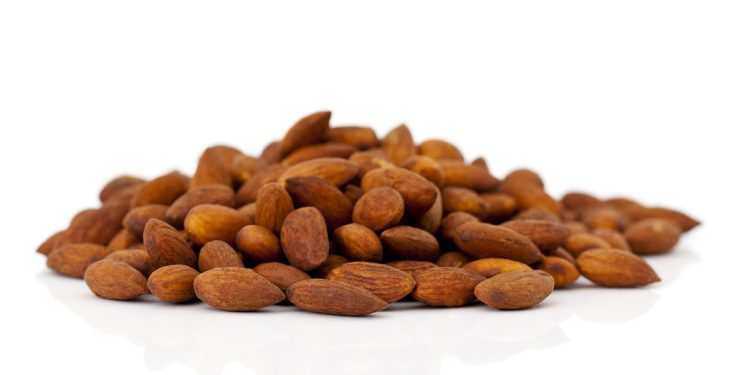5 Nutrient Deficiencies That Are Incredibly Common

Not getting enough of an essential nutrient can cause a host of health issues. When nutritional deficiencies are left unchecked, it can lead to debilitating health issues in the long term. This is why it is often advised that you consume a well-balanced diet and take supplements to make up for insufficient nutrients.
Nutrient deficiencies are preventable especially when you have sufficient information about them. The following are some of the most common nutrient deficiencies to watch out for and avoid.
Magnesium deficiency
An adult needs between 310 to 420 milligrams of magnesium for healthy living. This macromineral supports bone and teeth health. It also assists in the production of energy and is involved in numerous enzymatic reactions in the body.
Even though magnesium is a vital nutrient, a lot of people suffer from a magnesium deficiency. People suffering from certain health conditions such as type 3 diabetes or taking medications like antibiotics and diuretics are at risk of suffering from magnesium deficiency as this can block the absorption of magnesium or increase its loss.
Not getting enough magnesium can lead to symptoms like muscle cramps, migraines, abnormal heart rhythm, restless leg syndrome, and so on. Magnesium deficiency may also lead to high blood pressure and insulin resistance.
Taking magnesium-rich foods like almonds, spinach, cashews, black beans, and so on and taking supplements can help correct the side effects of magnesium deficiency. Magnesium supplements like those from MAGSUPPS are also a good option for those who cannot meet their daily magnesium requirement from diet alone.
Iron
According to the world health organization, iron deficiency tops the list of nutrient deficiencies in the world. Up to 30% of the world population is suffering from Iron deficiency. Preschool children, menstruating women, vegetarians, and those on a vegan diet are at the highest risk of becoming iron deficient.
Your body needs iron to produce sufficient red blood cells. When the iron level drops too low, it results in insufficient red blood cells, a condition known as anemia. As a result of this condition, the blood’s ability to transport oxygen drops significantly. Some of the symptoms of iron deficiency include fatigue, impaired brain function, weak immune system, shortness of breath, cravings for strange things (like dirt), swollen tongue, and so on.
Anemia is particularly fatal in pregnant women as it can increase the risk of infant and maternal mortality and low infant weight. To avoid this, getting a sufficient quantity of iron from both hem and non-heme sources is highly recommended. Heme sources of iron include red meat, shellfish, and organ meat while non-heme sources include kidney beans, squash seeds, black date, and non-flower seeds.
Vitamin A
Vitamin A is a type of fat-soluble vitamin known for its effects on healthy eyesight and strong immune function. This essential nutrient also contributes to healthy skin, teeth, and bones in both children and adults.
Since Vitamin A is needed to produce the eye pigments that aid vision, not getting enough of this nutrient can result in poor eyesight and even blindness. It can also lead to suppressed immunity and predisposition to infections of various kinds
Vitamin A is derived from animal products like milk, fish, and dairy. It can also be gotten from plants like vegetables and fruits. Given the abundance of natural sources, supplementation is not always necessary. However, supplements may be recommended when you aren’t getting enough or the body isn’t absorbing this nutrient as it should.
Iodine deficiency
Iodine deficiency is another very common deficiency. Nearly ⅓ of the people in the world don’t get enough iodine in their diet. This is alarming because Iodine is an essential nutrient needed to regulate various metabolic reactions in the body. Particularly, It contributes to the production of thyroid hormones and regulates its function.
Not getting enough iodine leads to a condition known as goiter-often characterized by an enlargement of the thyroid gland. Other symptoms that may accompany this include weight gain, shortness of breath, and so on. Severe cases of iodine deficiency can be detrimental to children as it impedes normal mental development and may cause retardation.
Iodine can be sourced from food products like fish, seaweed, dairy products, and egg. In some countries, table salt is enriched with iodine to help reduce iodine deficiency.
Vitamin B12
Vitamin B12 is a water-soluble vitamin that also goes by the name cobalamin. This vitamin is a constituent of DNA and is also needed for blood formation. Vitamin B12 may also contribute to brain health and normal nerve function.
The human body does not produce Vitamin B12. Yet, it is needed by every cell to function properly. Thus, you must get a sufficient quantity of this nutrient either from natural food sources or by taking supplements.
Vitamin B12 is obtained mainly from animal sources. Hence, people on a vegan diet are likely to suffer from a deficiency. Only some types of seaweed contain this vitamin and only in small quantities. Also, since absorption tends to reduce with age, elderlies are likely to suffer a deficiency.
Not getting enough of this vitamin a type of anemia known as megaloblastic anemia – enlargement of red blood cells, numbness in the legs and hands, impaired brain function, and several other diseases
The recommended daily average of B12 is 2.4 mcg for adults. Common sources include fish, chicken, yogurt, and milk. Plant-based milk and breakfast cereals also contain vitamin B12 and this can be a great option for vegetarians and those on other diets that make it difficult for them to get Vitamin B12 from animal sources.
Final Thoughts
The best strategy to avoid nutrient deficiencies is to live on a balanced and healthy diet. However, if you suspect that you may have a nutrient deficiency, talk to your doctor to get a test and get recommendations for foods and supplements to use to avoid the debilitating symptoms of any of these deficiencies and restore your health.










